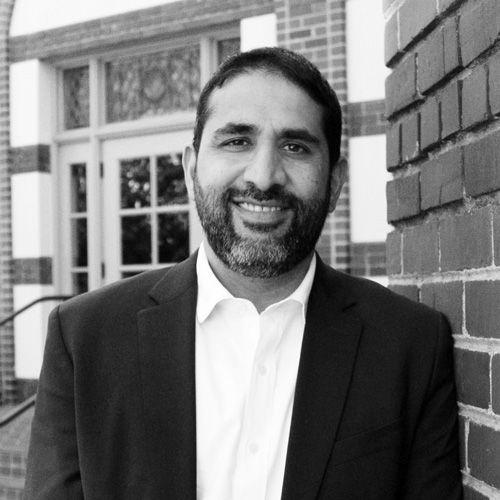Health law is a multisided entity that rewards attorneys who spend time in more than one part of it. Brooks Newman, whose particular interest in health law is longstanding, is familiar with the provider and payer sides of the equation. With Humana, Inc.—where he serves as VP, associate general counsel, and head of its Medicare and Medicaid law group—both sides of health law play a substantial role in his work.
Through Humana, Newman has gained invaluable experience with regulatory issues—those connected with government reimbursements—as he’s worked with those issues from a couple different angles. And as part of the company, which has become more of an integrated-care delivery model in recent years, Newman is involved in joint-venture partnerships with providers as well as Humana-owned clinical operations.
“To say ‘we want to be compliant and consumer-centric’ is a very lofty goal. It’s not something that can be done lightly or overnight.”
In other words, variations on everything he already knows. “It feels like I’ve come full circle,” he says.
The Medicare part of Newman’s circle is no small responsibility, considering Humana offers plans and prescription coverage to over 7.7 million Americans, making it one of the largest Medicare providers in the United States. Of particular note is Medicare Advantage, an alternative to original Medicare that carries fitness benefits, vision plans, care coordination and management, and even a nurse who is on call twenty-four hours a day. “We try to coordinate the different providers on the [patient’s] team to make sure they’re getting the most effective and efficient experience they can receive,” Newman says. “Having Medicare Advantage is like having a personal healthcare advocate.”
Even basic medical issues and the accompanying red-tape potential are enough to make the advocacy role an appealing one. But the real win-win comes in the preventive approach of Medicare Advantage, which translates into fewer emergency room visits and reduced costs for both patient and insurer.
That “win-win” ideal is at the heart of Humana’s current set of priorities, which revolves around crafting corporate strategies and goals that are both compliant with industry standards and consumer-centric.
“We’re in a highly regulated industry, with lots of terms and conditions dictated to us. Certain things are non-negotiable, so we have to do them a certain way,” Newman says of the need for compliance. “But there are also opportunities, through innovation and creativity, to offer things in a way that would be best received by the consumer—a.k.a. consumer-centric.”
It is, admittedly, a delicate balance to strike. “Given all the operational complexity, simple compliance of a threshold matter is difficult in and of itself,” Newman says. “So, to say, ‘We want to be compliant and consumer-centric,’ is a very lofty goal. There’s ambiguity, there’s judgment, there’s interpretation … it’s very difficult. Not something that can be done lightly or overnight.”
Yet through the range of challenges, one constant goal stands clear: treat patients more in terms of a whole, and less as a series of tests, procedures, and services. It’s become known in the industry as “value-based care,” and for legal veterans like Newman, the shift has been pretty dramatic.
But a study conducted in 2013 revealed that Medicare Advantage patients who are part of value-based care experienced, per one thousand patients, a seven-percent drop in emergency room visits and four percent fewer inpatient admissions—numbers that indicate things are headed in the right direction for all involved.
“We now see doctors receiving bonuses based on patient outcomes,” Newman says. “And eventually more, through partnerships, will get a percentage of premium for managing the individual’s care. In that respect, we, and the providers, become partners in care of an individual.”
In doing so, Humana works to help shape the care of the communities it serves, which is the backbone of another industry-wide trend known as population health. Focusing on matters like illness prevention, mental health, and a given area’s cultural factors can reveal how effective healthcare services are for that given area.
“The ability to take a walk in a park that’s safe, or to get to the doctor if you don’t have a car, or get healthy food at a reasonable price … all these things contribute to someone’s health in ways much more significant than the items they actually receive from a doctor at a hospital,” Newman says. “So we’re trying to find ways to create those connections within a community.”
However, there’s a twist to the way in which the organization is finding those solutions. Most organizations work from what Newman calls a “command/control model”—that is, one in which a handful of people near the top of the organization give direction, while those further down do what’s asked of them.
“We’re trying to move toward empowerment, which is about individual authority and accountability,” Newman explains. “Within agreed-upon parameters, the person higher up doesn’t have to give their blessing on every single decision that is made. This helps develop employees by giving them the power to make certain decisions without running every single decision up the flagpole.”
That sense of empowerment is especially important nowadays, with so many Humana associates working directly with consumers and taking great pride in the consumer-centric focus on client health. The result, Newman says, is a relationship that’s stronger on both sides. “Trust in Humana means being responsive when a care manager calls saying, ‘I’ve got some ideas to help you through your diabetes; we have a health plan specifically for your needs … would you be interested in participating?’
“That’s a lot of trust for someone to put into a health plan, but I believe if we build that trust, it’s going to help people connect to their best health.”


